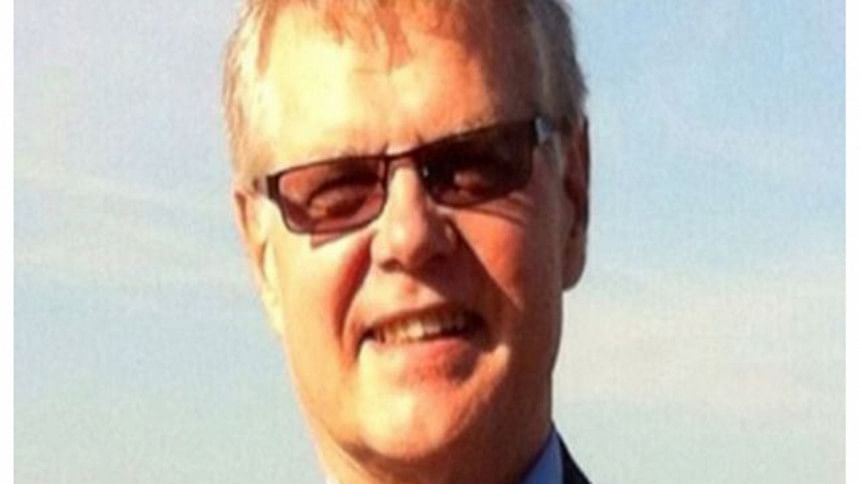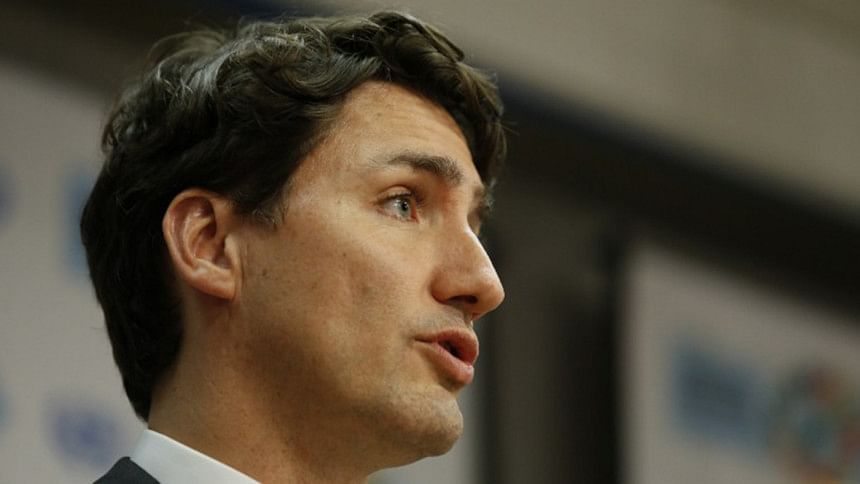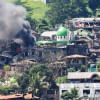Trudeau outrage at Philippines murder

The Canadian Prime Minister Justin Trudeau has condemned the killing of a Canadian hostage kidnapped by Islamist militants in the Philippines.
John Ridsdel, 68, was taken from a tourist resort with three others by the Abu Sayyaf group in September 2015.
In November, the Islamist militants released a video showing Ridsdel and three other captives, and demanded a ransom of $80m (£55m).
Trudeau called his death "an act of cold-blooded murder".

On Monday, a severed head was found on remote Jolo, hours after the Abu Sayyaf ransom deadline expired. Local authorities said it belonged to a foreign man but have not confirmed whether it belonged to any of the captives.
Ridsdel was taken to Jolo after being kidnapped from a marina near the city of Davao, along with another Canadian, Robert Hall; a Norwegian, Kjartan Sekkingstad; and a Philippine woman, Hall's girlfriend, Marites Flor.
Ridsdel later warned in a video released by the group that he was due to be killed on 25 April if no ransom was paid.
The Canadian government has a policy against paying ransoms, The Globe and Mail cited a government official as saying.
What is Abu Sayyaf?
One of smallest but most radical of Islamic separatist groups in southern Philippines, its name means "bearer of the sword" in Arabic.
It split from the larger Moro National Liberation Front in 1991. Membership is said to number in the low hundreds.
What does it want?
The group has been agitating for the creation of an independent Islamic state in predominantly Catholic Philippines, and uses tactics such as hostage-taking and bombings to pressure the government.
Previously linked to al-Qaeda, its leaders recently pledged allegiance to the so-called Islamic State.
How dangerous is it?
Numerous Filipino and foreign civilians have been kidnapped in south Philippines and parts of neighbouring Malaysia over the decades, and used as hostages to extract ransoms.
Though some have been released after negotiations or attacks by Philippine forces, others have been murdered when demands were not met.
Abu Sayyaf has also claimed responsibility for bombings in cities in the south and a ferry bombing in 2004 in Manila Bay that killed more than 100 people, considered one of the worst terror attacks in the Philippines.
Confirming the death of Ridsdel, Trudeau called it a "heinous act".
"Canada condemns without reservation the brutality of the hostage-takers, and this unnecessary death. This was an act of cold blooded murder and responsibility rests squarely with the terrorist group who took him hostage," he said in a statement.
Former mining executive
"It's hard," a friend of Ridsdel, Bob Rae, told CBC News. "It's just very hard. I've been involved behind the scenes for the last six months trying to find a solution and it's been very painful."
A former mining executive, Ridsdel is described by Canadian media as semi-retired. He also worked as a journalist.
Abu Sayyaf was set up in the 1990s with funding from al-Qaeda, and is fighting for an independent Islamic province in the Philippines.
One of its commanders recently pledged allegiance to militant group calling itself Islamic State. Abu Sayyaf is also holding several other foreigners.
Eighteen Philippine soldiers were killed in clashes with the militants on Basilan island near Jolo island earlier this month.

 For all latest news, follow The Daily Star's Google News channel.
For all latest news, follow The Daily Star's Google News channel. 








Comments